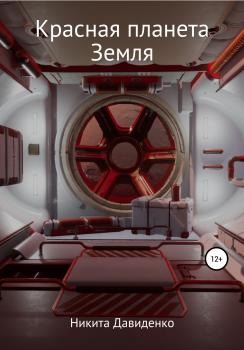MREADZ.COM - много разных книг на любой вкус
Скачивание или чтение онлайн электронных книг.Гастрольные заметки: письма к Тому
Настоящую книгу составили письма к Тому Батлеру – профессору Гарвардского университета, – переписку с которым актриса Алла Демидова вела с 1990 года до 2007-го. Случайное знакомство привело к интереснейшему общению, а затем и к созданию книги. Письма А. Демидовой вместили в себя описание поездок и гастролей, театральных постановок, а также рассказ о людях, с которыми ее сводила судьба. Среди них Сергей Юрский, Юрий Любимов, Роман Виктюк, Антуан Витез, Теодорос Терзопулос, Лариса Шепитько, Сергей Параджанов. Письма чередуются с выписками из дневников актрисы или небольшими «ремарками», где более подробно раскрываются те или иные события, а также укрупняются портреты современников. Книга со всей правдивостью отразила различные пласты времени и культуры в России и за рубежом.
Покемоны и иконы
Главный герой – молодой и известный видеоблогер, который от первого лица рассказывает о своём задержании, аресте и суде за ловлю покемонов в православном храме. В основу романа положен реальный приговор суда, по которому водеоблогер был признан виновным в экстремизме и в оскорблении чувств верующих. История главного героя – это попытка отделить фальшь от правды, которая в современном мире в большом дефиците. Содержит нецензурную брань.
Русский танкист. Часть 1. Героями не рождаются
Недалёкое будущее. Террор перешёл в новую фазу и берёт под контроль целые регионы у окраин страны. У Ваньки Солнцева нет выбора. Его оружие – руки и голова, его друзьям по 16 лет, его город на самой границе – там, где покой только сниться. Они вдохнули в старую тридцать четвёрку новую грозную силу. Этим парням всё по плечу. Ты давно не читал на одном дыхании? Эта новелла не отпускает до самой развязки. Жив ещё русский танкист.
Волшебное очарование уроков рисования. Наглядно-дидактическое пособие по изобразительному творчеству
В пособии представлены секреты мастерства нетрадиционных техник рисования с подробными методическими рекомендациями использования их в практике работы с детьми. Читатели познакомятся с подробным описанием материалов и приемов, алгоритмов техники наглядного изображения каждого этапа работы. Книга предназначена для воспитателей и педагогов дополнительного образования, педагогов, развивающих детских и юношеских центров, студентов ВУЗов и ССУЗов, гувернеров и родителей.
Мяу
Елизавета Вячеславовна Карпова
Питомцы кошки и коты, как домашние цветы. Мы их холим и лелеем, ухаживаем и жалеем. Любить себя нам позволяют, но сами по себе гуляют. Хулиганят и шалят, а порою веселят. О них написаны стихи, почитайте, неплохи! Прочитайте, улыбнитесь и с друзьями поделитесь! С уважением, от автора!
Красная планета Земля
Готовы ли вы отправиться в захватывающее путешествие с первыми колонизаторами Марса? Вам представиться шанс узнать историю человека, которому приходилось принимать тяжёлые решения ради общего блага. Нельзя допустить даже малейшую ошибку, ведь она может забрать жизни многих людей, которых всё ещё ждут на Земле. Или не ждут?
Бросок камня
Что, если виртуальные миры становятся реальностью? Не живем ли мы в виртуальном мире, созданном некими наукоманами с помощью электронных мозгов? В этой остросюжетной фантастической повести речь пойдет о героических приключениях князя и о чудом выживающих последних виртуальных людях в суровую эпоху Великой Пустоши. Он не побоялся богов и бросил камень в их наблюдательное управляющее устройство.
Владычица
Она всю жизнь жила по правилу: "я вас не трогаю, вот и вы меня не трогайте", не особо интересуюсь окружающим миром. Все, что для нее было важно – это ее магия, мечта стать сильнейшей волшебницей в мире. А он? Он живет уже так долго, что стал утрачивать интерес к жизни. Бессмертие, сила, богатство, власть… Все приелось, осталась лишь скука. Но как изменится жизнь этих двоих в следствии ошибочного призыва? Смогут ли они стать спасением друг для друга?
Событие
Конец света разворачивается прямо у них на глазах. Группа спецназа, имеющая особую миссию, вынуждена бороться за жизнь и со стихией, и с людьми, стремящимися выжить, пусть даже ценой жизни других людей. В самом недалёком будущем нашу планету ожидает глобальная катастрофа. Никаких зомби, Нибиру, и драконов. Стремительный и беспощадный, но совершенно природный Апокалипсис. Который, впрочем, оставляет надежду на выживание, так как кое-кто предполагал подобное Событие и даже успел подготовится. Офицер полиции Сергей Вакуленко оказывается на острие подготовки к выживанию в катастрофе, когда времени уже не осталось. Но волей случая он оказывается в группе людей, чья задача не просто выжить…
Краш-тест
Два начинающих писателя, желая придать особой остроты и реалистичности своему совместному произведению в жанре криминального триллера, сами становятся на путь совершения целой серии разбойных нападений и жутких убийств. Жертвами их кровавых «краш-тестов» становятся наркоманы, бродяги, маньяки, бандиты и прочие представители социального дна. Параллельно с этим они вмешиваются в войну между двумя бандами. Убивая поочерёдно представителей то одной, то другой стороны, они тем самым ещё сильнее разжигают происходящий между ними конфликт.









